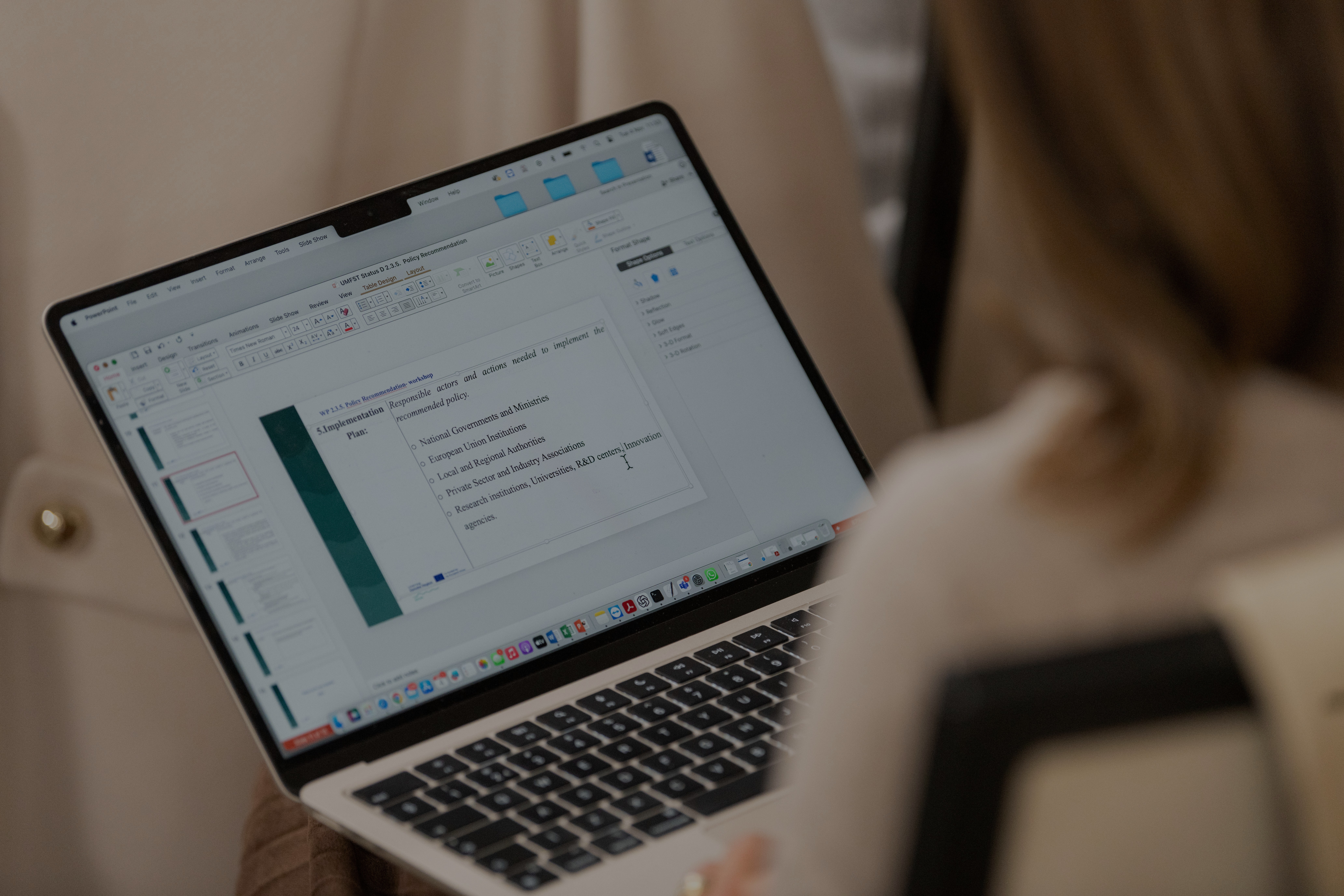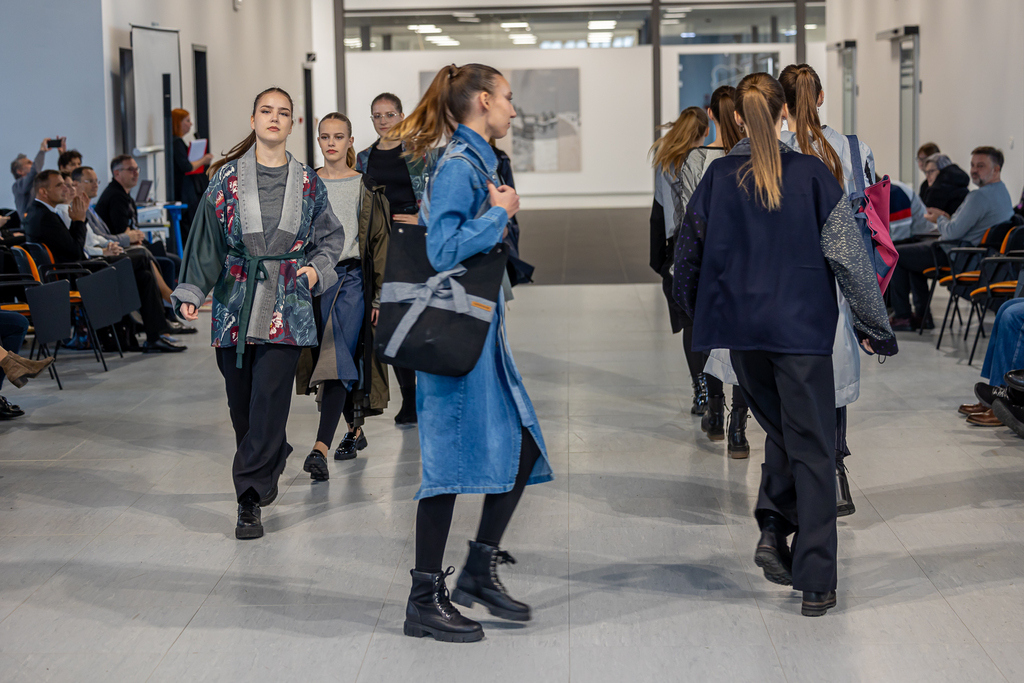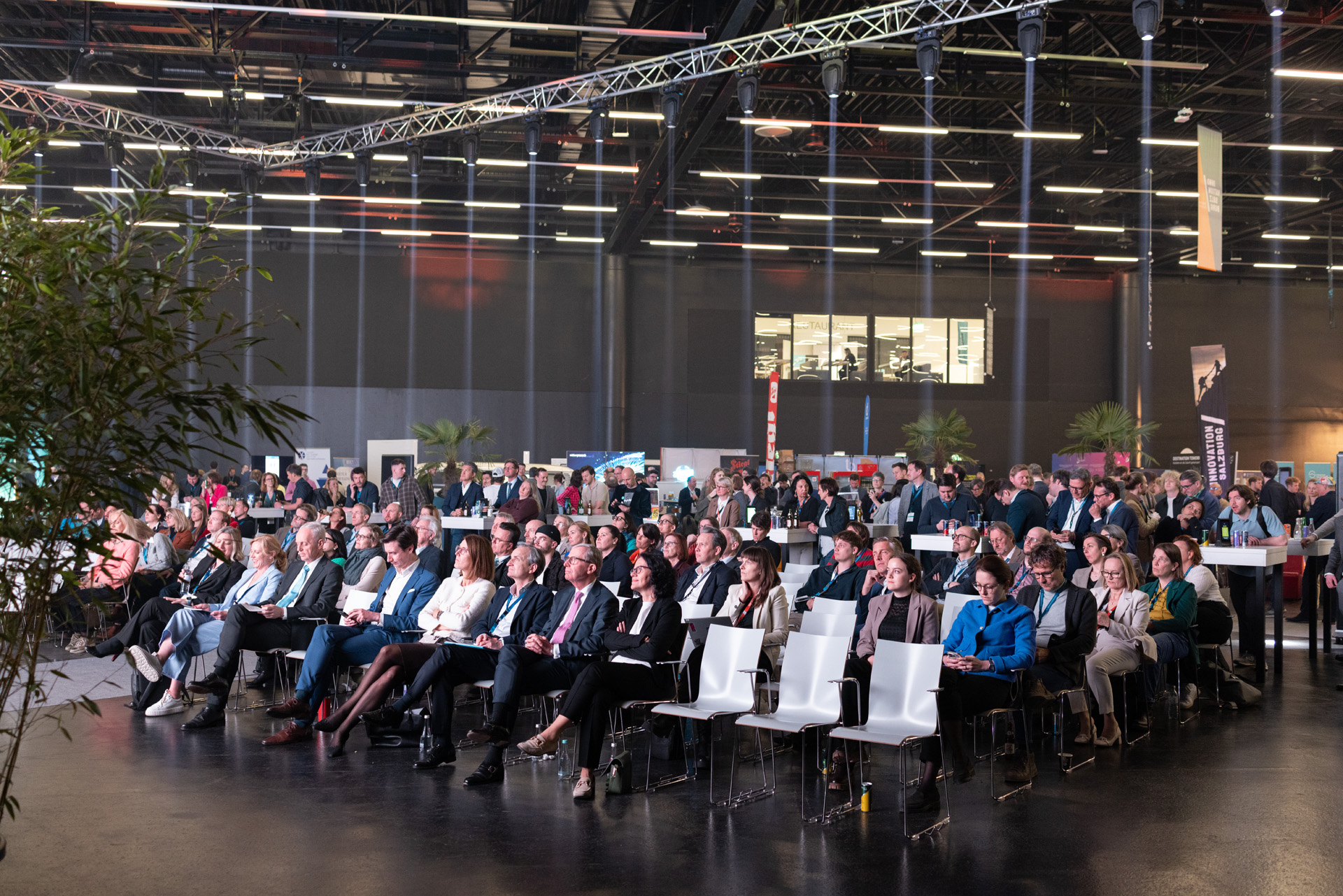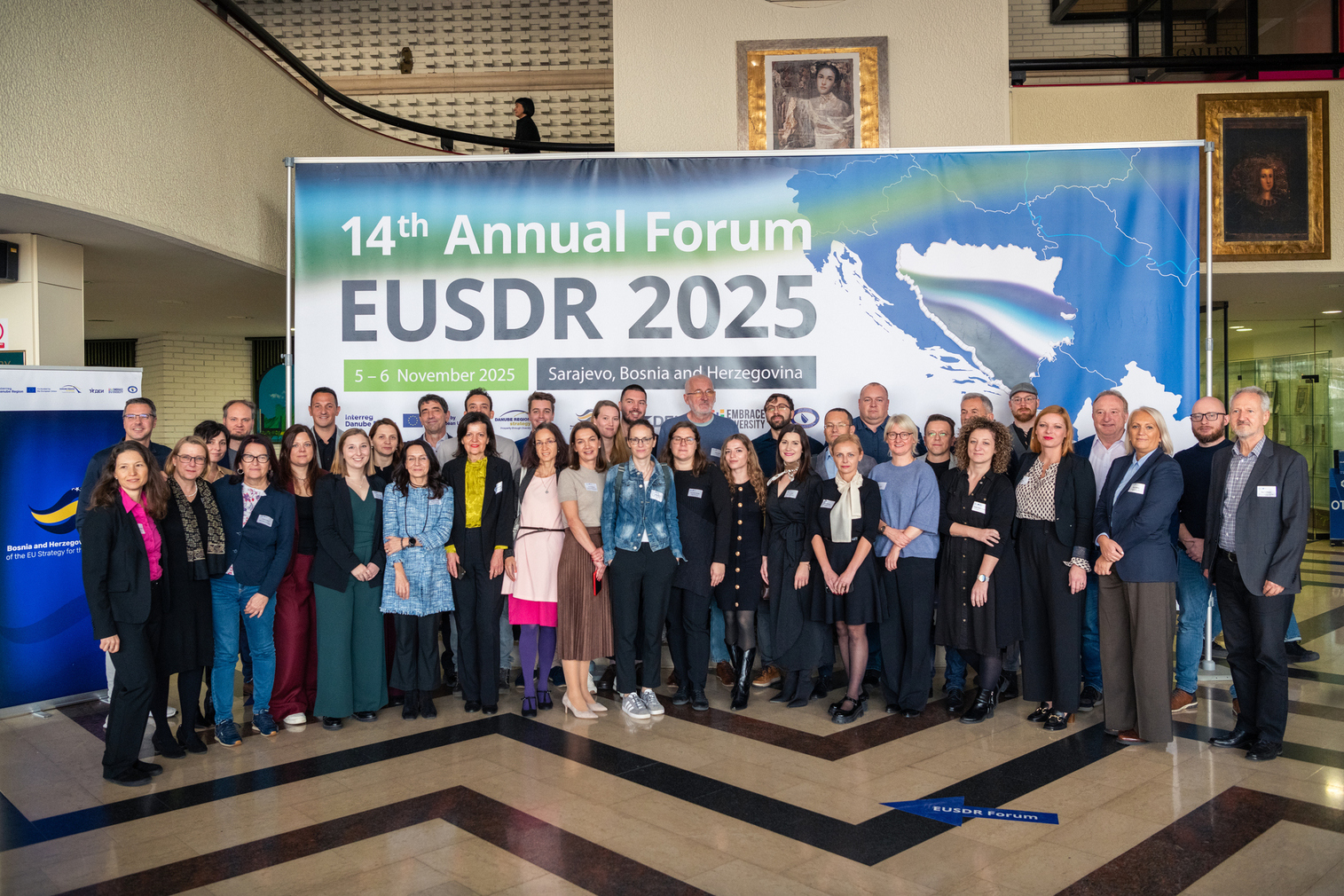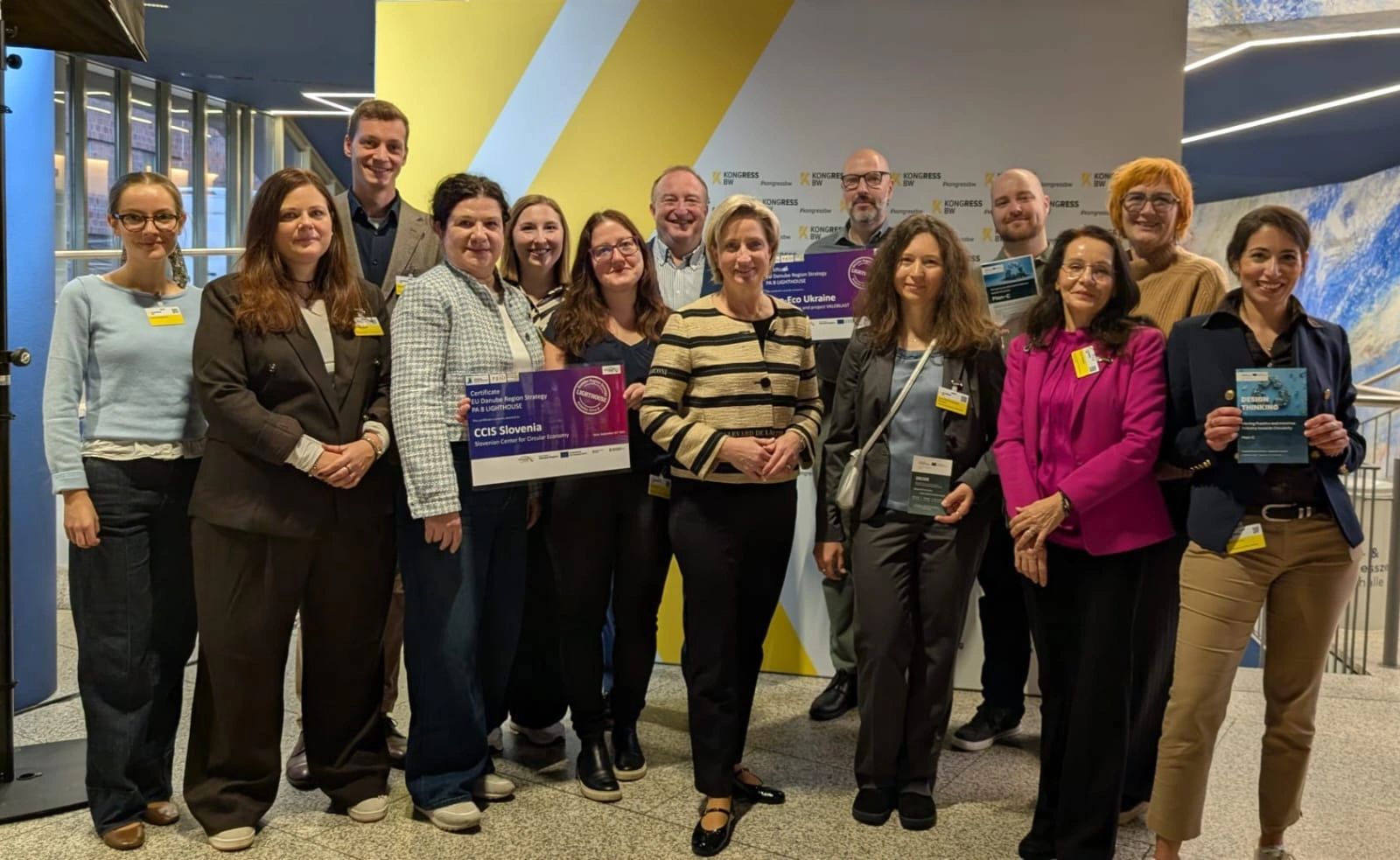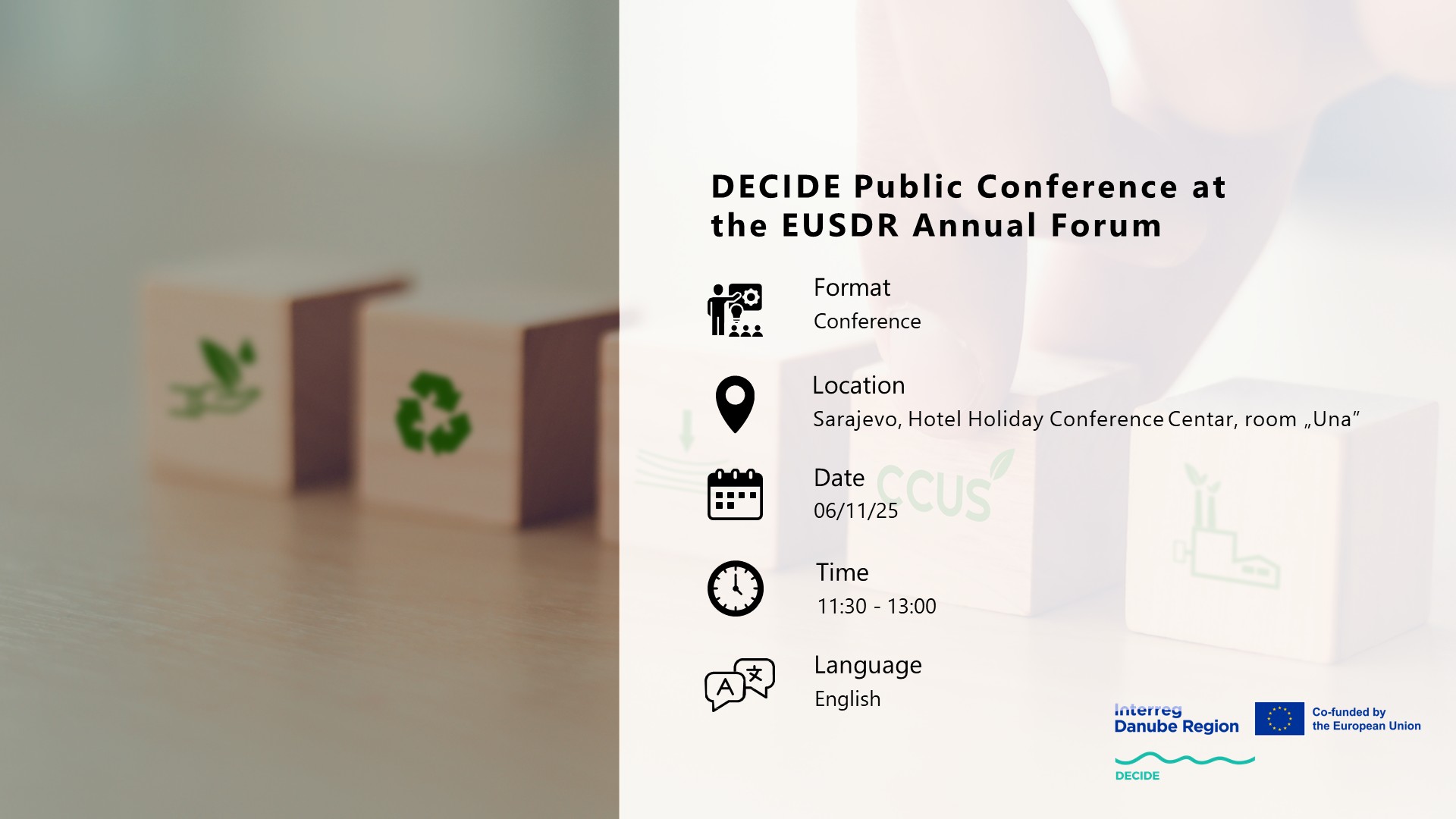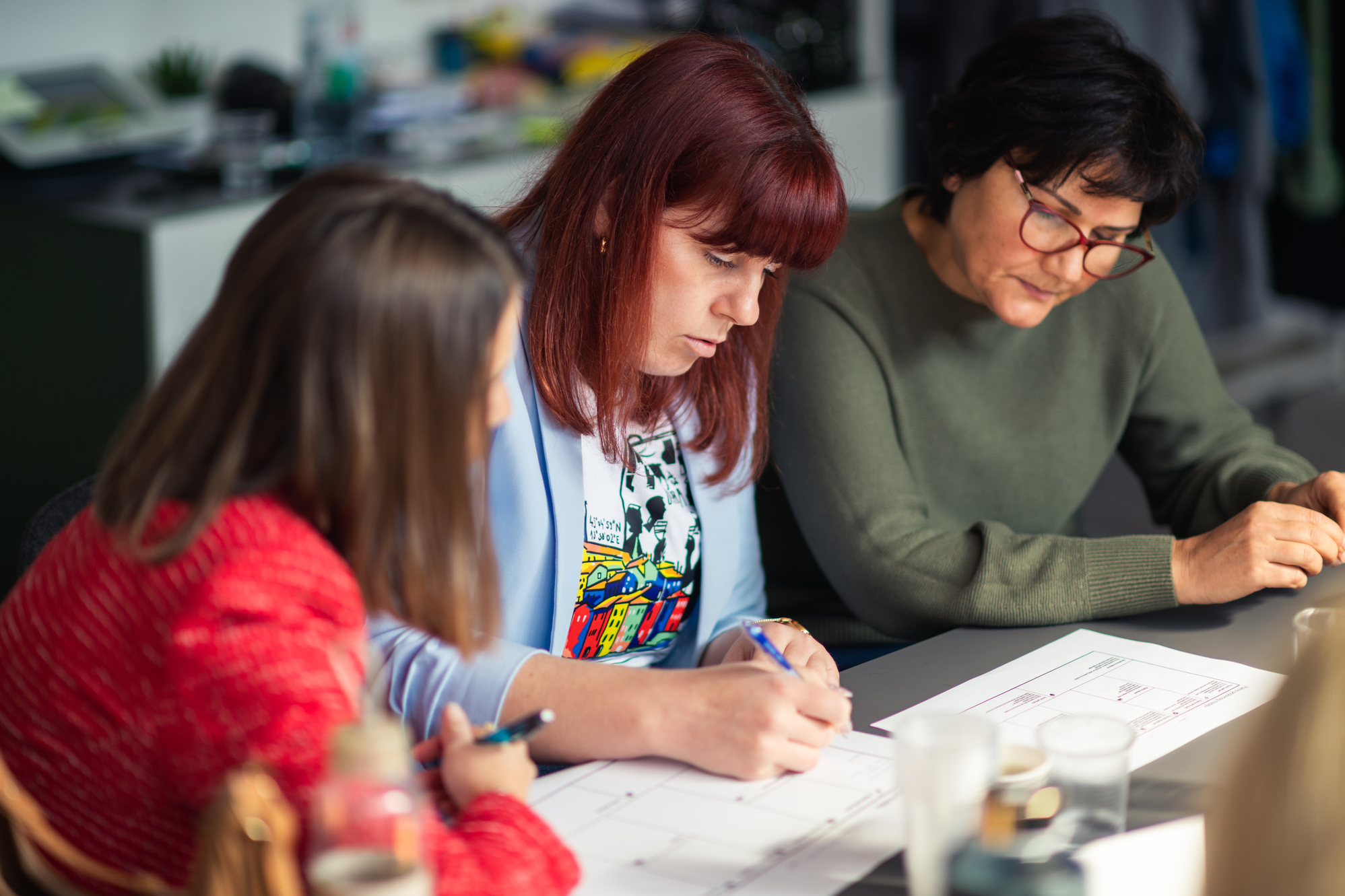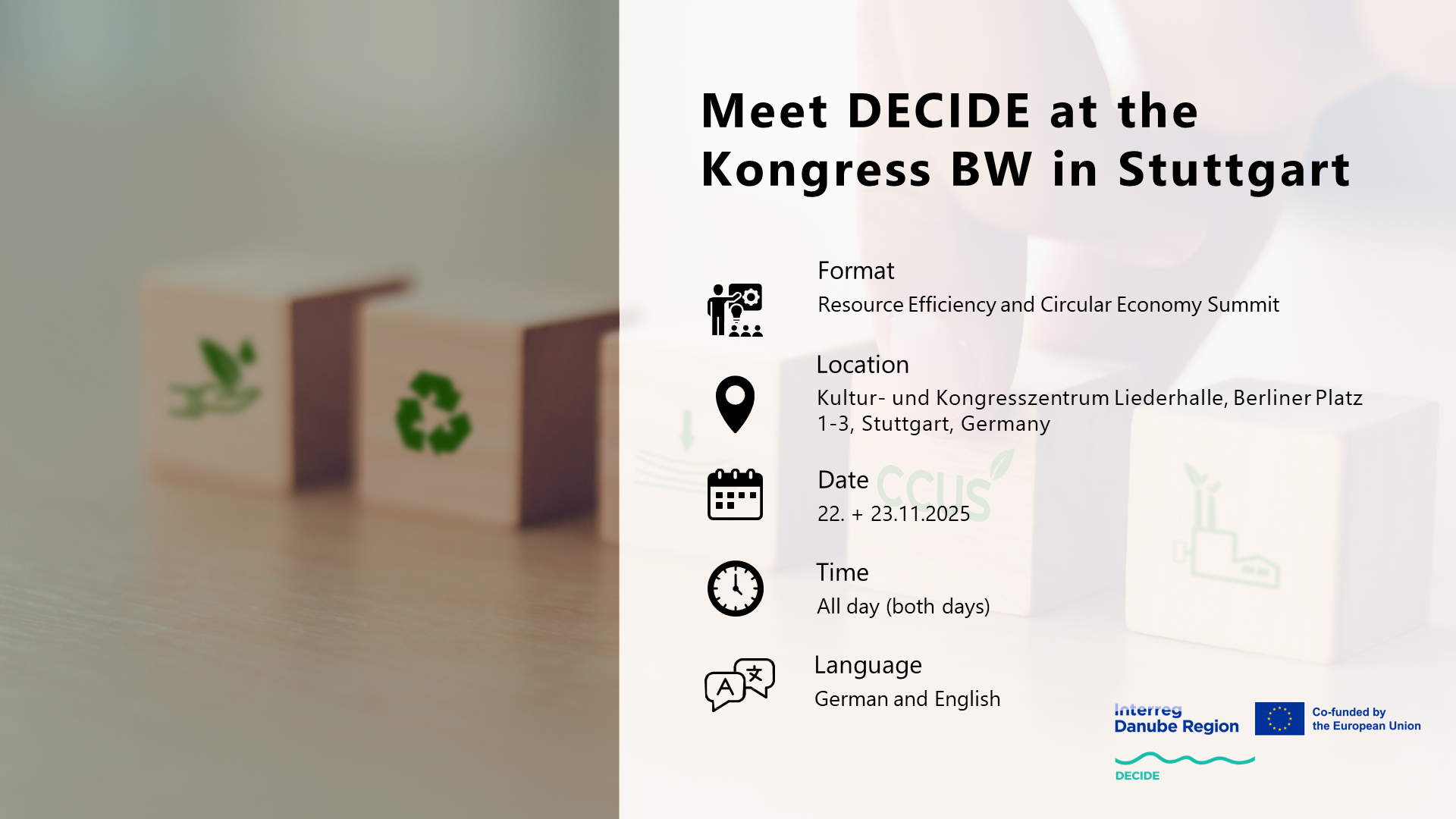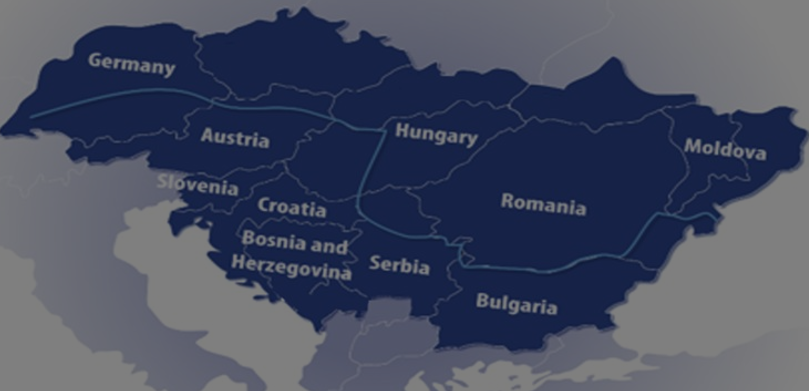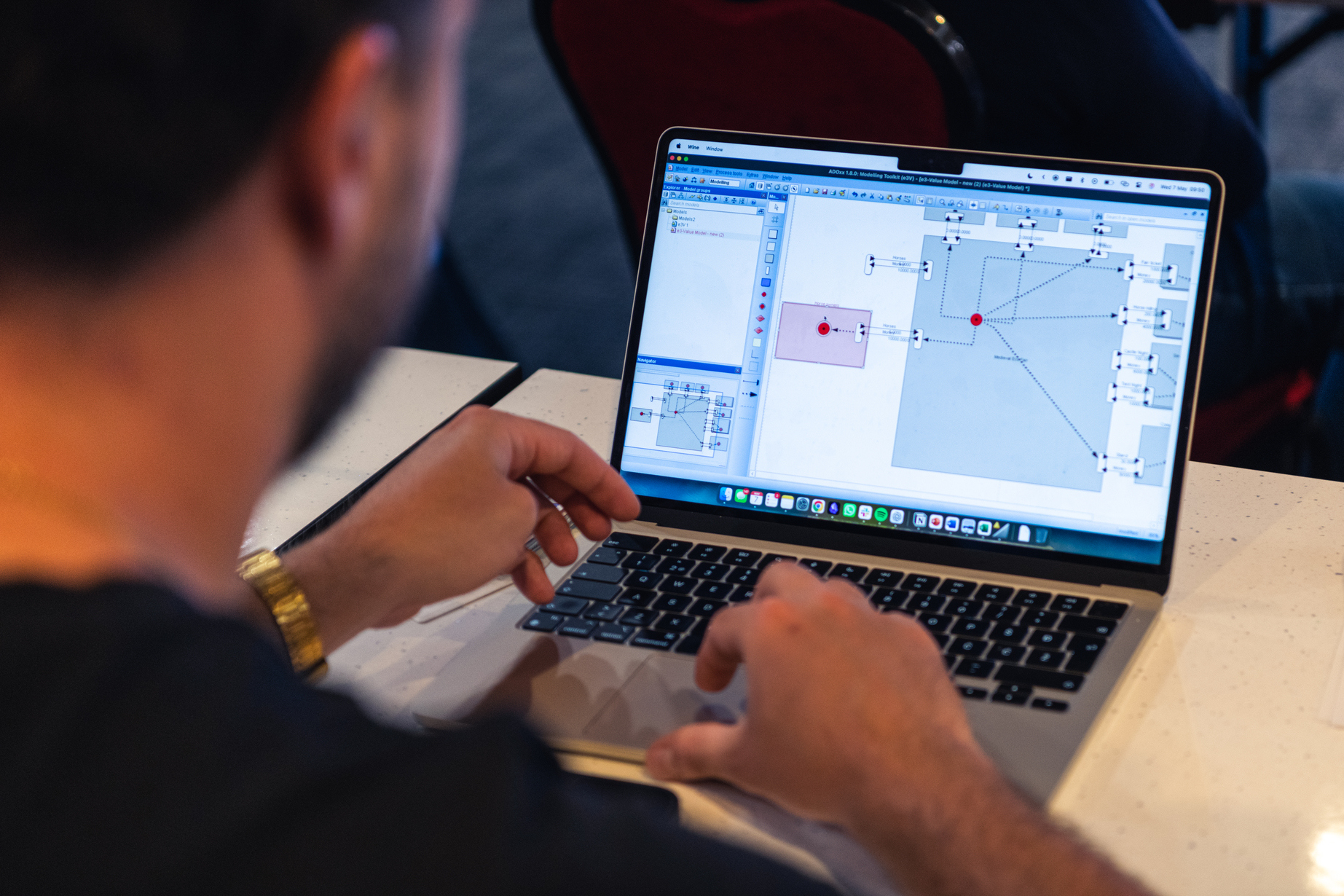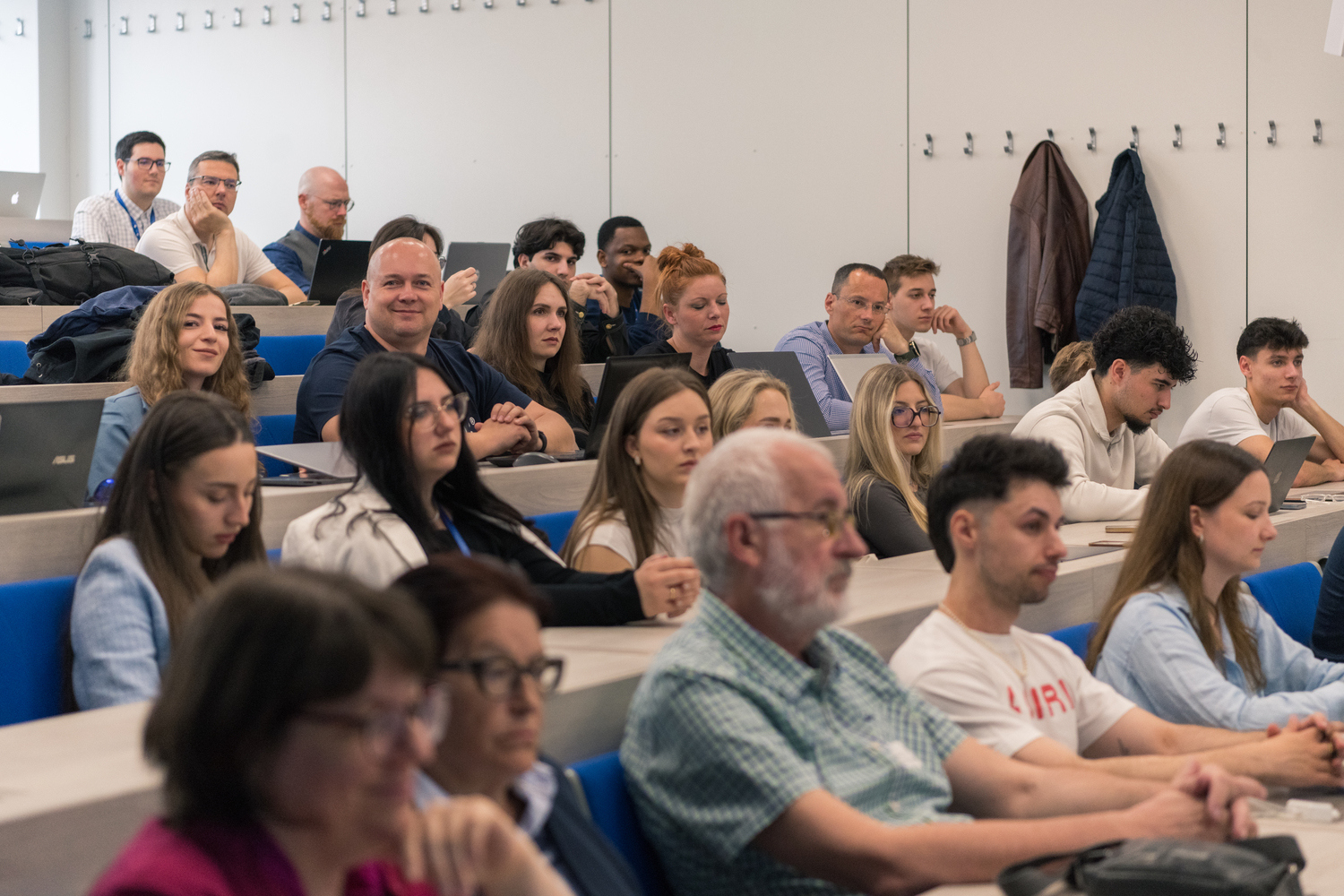
CIRCULAR ECONOMY CONFERENCE AND DECIDE PROJECT PARTNERS MEETING IN TÂRGU MUREȘ
On 6th and 7th May 2025, partners of the DECIDE – Digital Services for Circular Economy project gathered in T“rgu Mureș, Romania, for two major events: an international conference and the Period 3 partner meeting. The events were hosted by UMFST G.E. Palade of T“rgu Mureș and the Alumni Association of Petru Maior University, with the support of the project’s lead partner, ZD.BB GmbH.
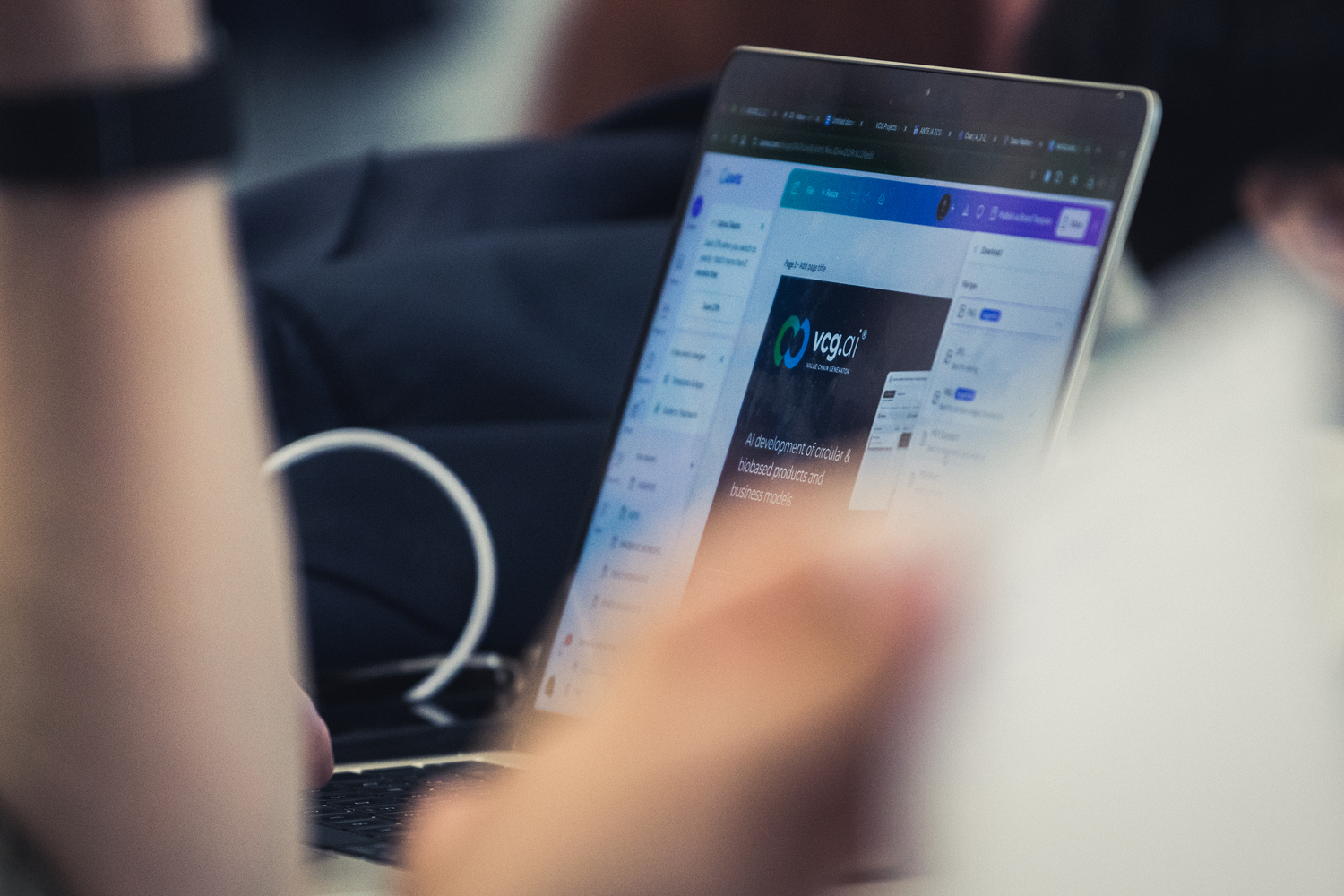
Image 1: The DECIDE project international conference. Copyright: TICM
International Conference – “Digital Leap into the Circular Economy”
The conference, titled “Digital Leap into the Circular Economy: Unlocking Potential for a Greener Danube Region”, brought together project partners, institutional stakeholders, local authorities, students, and regional actors to explore how digital innovation can accelerate the circular transformation in the Danube Region.
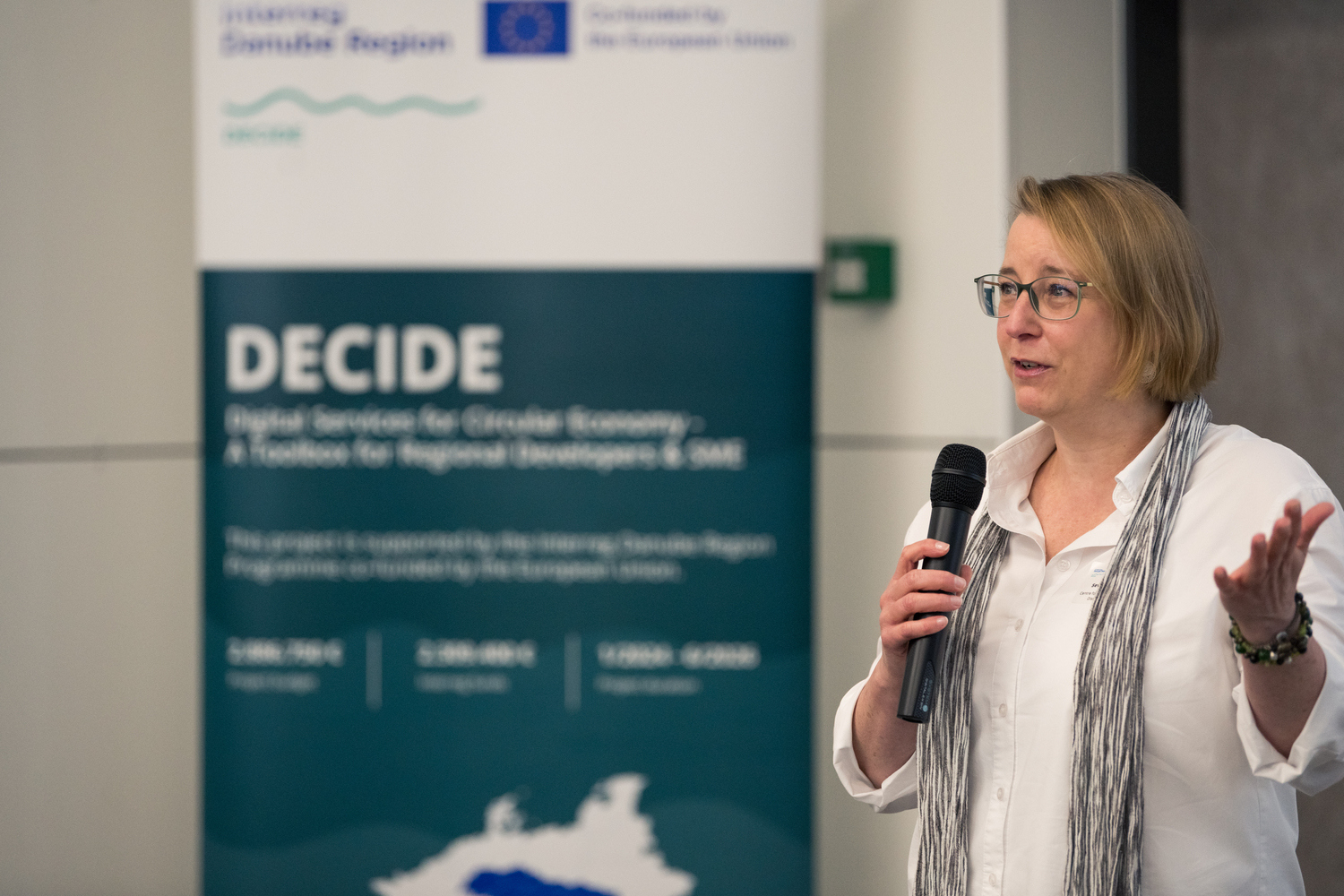
Image 2: Welcoming speech by Severine Dommer, DECIDE project manager. Copyright: TICM
The event opened with a keynote address by the hosts, highlighting the region’s potential to lead the transition towards sustainability. The central message was that the circular economy is not just an environmental imperative — it is also a path to competitiveness, economic resilience, and social prosperity.
During the congress various speakers presented DECIDE's digital tools to identify and visualize circular value chains like the Value Chain Generator. Furthermore, participants were given insights into national pilot applications and cross-sector collaborations.
The speakers emphasized the importance of creating ecosystems that support small and medium-sized enterprises (SMEs) in adopting circular business models — and of extending successful practices to other EU regions and beyond.
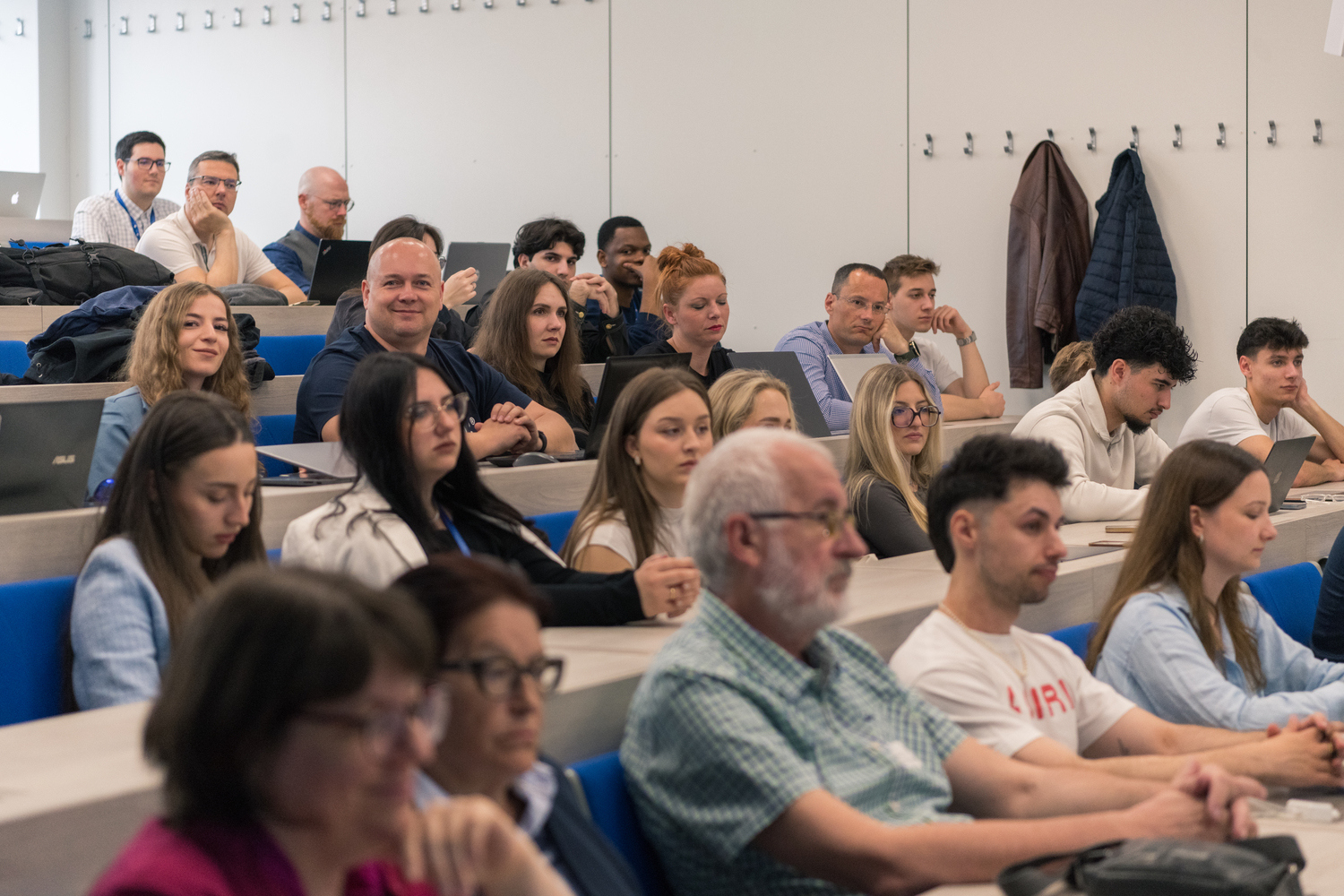
Image 3: The conference was attended by project partners, Erasmus students and local stakeholders. Copyright: TICM
At the end of the conference a survey was conducted among external participants to gather their views on the main opportunities and challenges in developing the circular economy in the Danube Region.
The results indicated that participants see strong potential in circular economy practices to improve resource efficiency, foster innovation in product design and business models, create new jobs, and strengthen collaboration between academia, business, and the public sector. The role of digital tools in enabling better data tracking and value chain optimisation was also highlighted as a key enabler.
On the other hand, participants identified several significant barriers, including a lack of awareness and education on circular economy principles, limited financial incentives and regulatory support, resistance to change within organisations, the complexity of implementation—especially for SMEs—and insufficient data availability and cross-sector coordination.
These findings reinforce the relevance of the DECIDE project’s objectives and offer valuable guidance for future activities. The conference served as a platform to highlight the importance of cross-border cooperation, the role of public institutions, and the need for accessible, practical digital tools to support the green transition of SMEs.
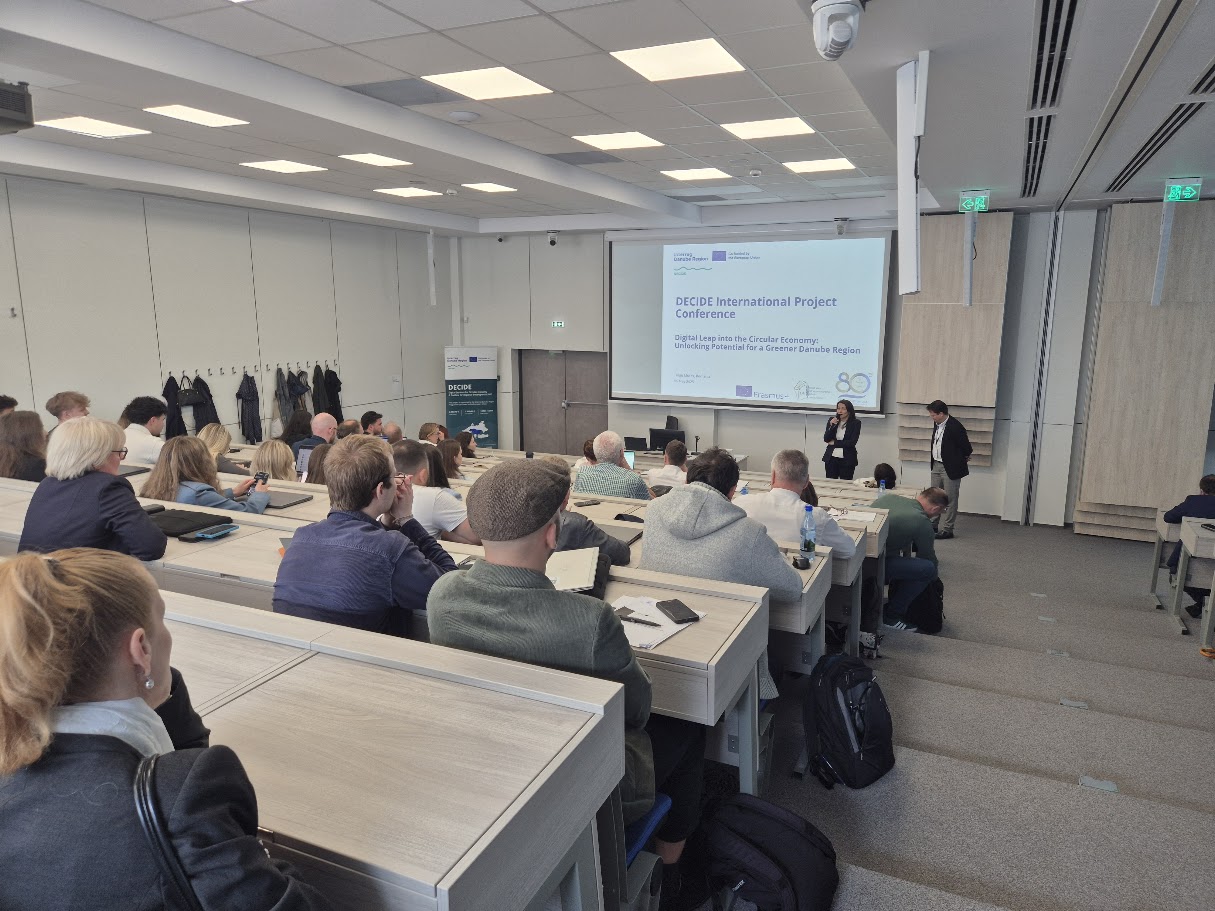
Image 4: Local guest speakers presented their projects and ideas. Copyright: TICM
Partner Meeting and Practical Workshops: Two Days of Collaboration and Applied Learning
Following the international conference, the DECIDE project held its Period 3 partner meeting over two days, beginning on the afternoon of 6th May and continuing throughout 7th May. Originally designed as a one-day session, the Train-the-Trainer workshops received such positive feedback that they were extended to a full second day.
On Day 1, participants took part in a Fast-Forward Workshop Scenario, which focused on simulating decision-making and rapid planning for circular business transformation. Building on this momentum, Day 2 was fully dedicated to group work and practical modelling.
Nine teams were formed, each tasked with designing a circular economy business model based on the case study they were assigned. Teams worked with elements from the DECIDE Toolbox, applying modelling techniques using two core tools: Vensim and ADOxx. Within these environments, they explored and developed system dynamics, value exchanges, and business process logic using methods such as e3value and BPMN, each applied with the relevant tool.
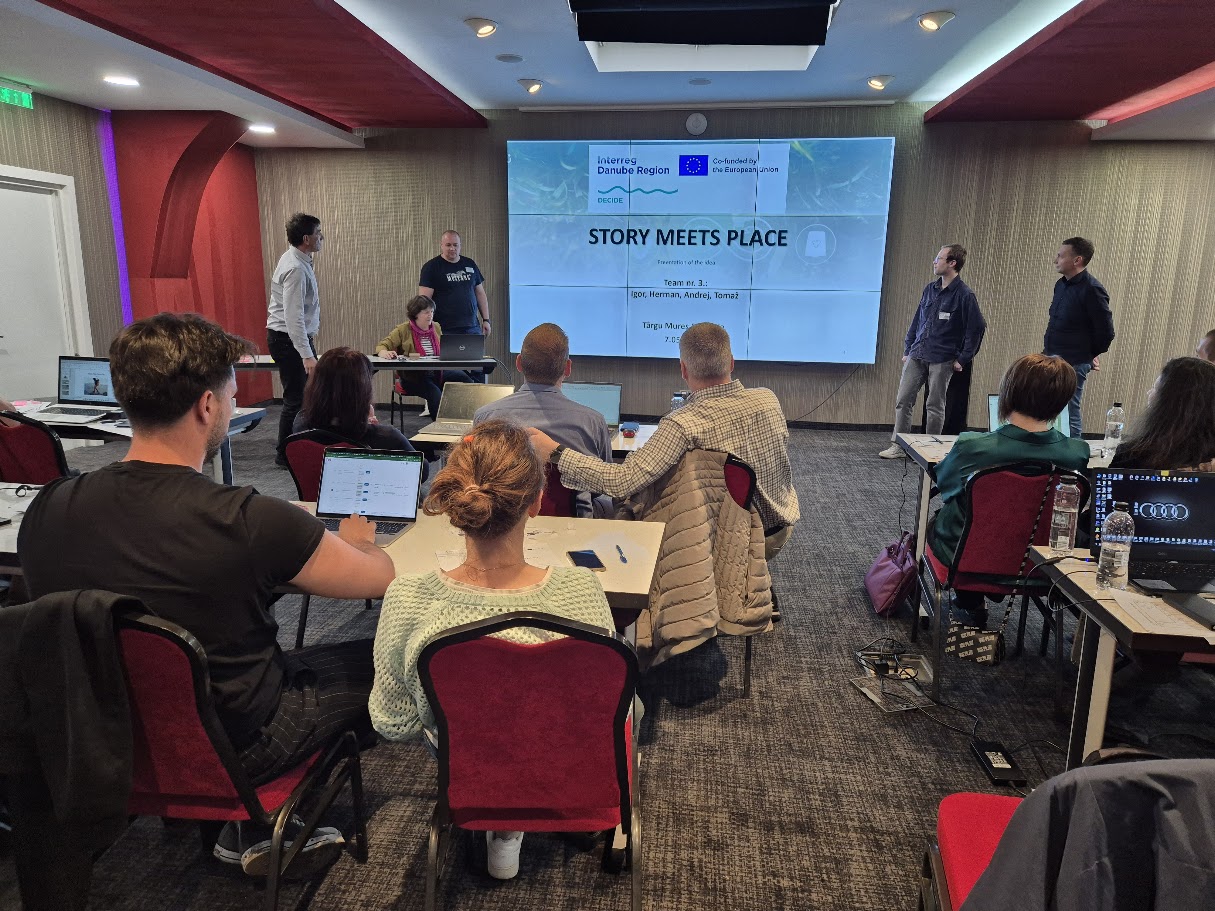
Image 5: The teams presented their circular business ideas. Copyright: TICM
Upon completing their modelling work, the teams presented their circular business models to the other project partners. The workshop concluded with a peer voting session, where participants selected the most effective and innovative model, recognising the best-performing team of the session.

Image 6. The best team received an award. Copyright: TICM
The two-day workshop provided a dynamic space for hands-on learning, collaborative teamwork, and a deeper understanding of how to apply DECIDE’s tools to real-world circular economy challenges.
As part of the official programme, the hosts from T“rgu Mureș prepared a special cultural moment to celebrate the occasion. The highlight was a concert by a student orchestra, held in honour of two meaningful milestones: the university’s 80 years of excellence in science, and the midway point of the DECIDE project’s implementation.
To commemorate this symbolic “half-time” moment of the project, the event concluded with a celebratory gesture — a specially designed DECIDE-themed cake, shared in a warm and joyful atmosphere among all participants.
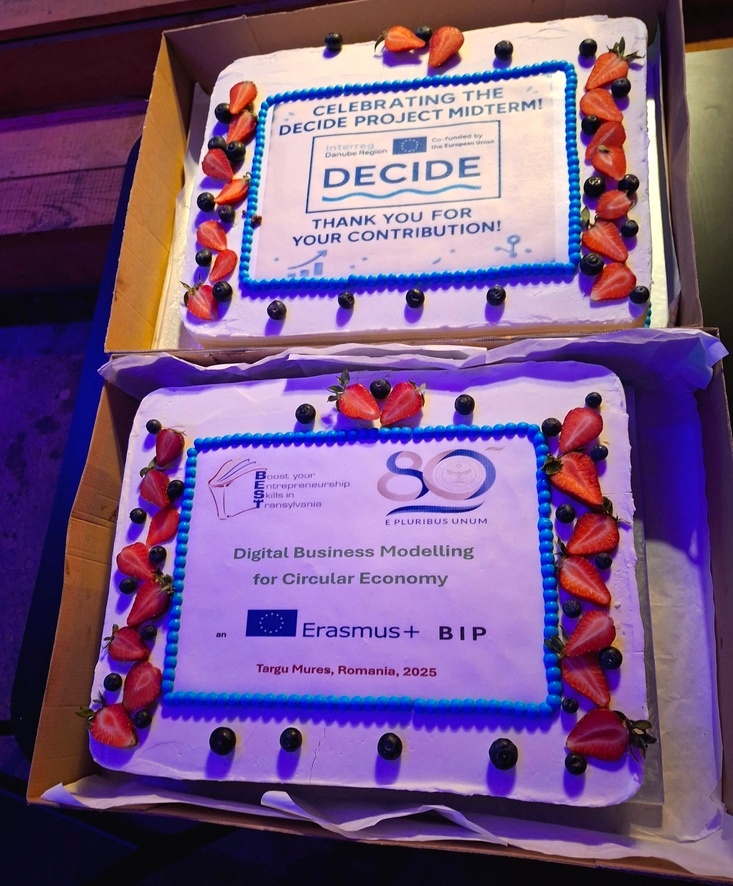
Image 7: The midterm of the DECIDE project was celebrated with a delicious cake.. Copyright: ZD.BB GmbH/Diana Schwarz-Dermann
The event in T“rgu Mureș reaffirmed the strength, commitment, and shared vision of the DECIDE partnership as it confidently moves into the second half of the project.
News & Events
Read the most recent updates and explore the upcoming events.

